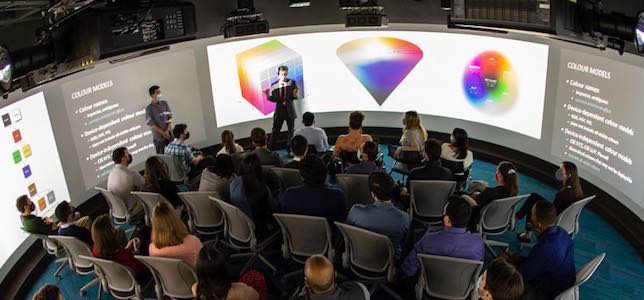
FLEXspace, the Flexible Learning Environments eXchange will move under the management of HETMA, the Higher Education Technology Managers Alliance, so that both can benefit from synergies between the two nonprofit, community-based organizations. FLEXspace will continue as a free service and release its 3.0 portal version in early spring.

What does 2024 have in store for higher education? As institutions grapple with ongoing challenges and new obstacles in the year ahead, admissions leaders are reevaluating strategies, revamping processes, and reaffirming their commitment to their institution's efforts to broaden access to higher education.

New attitudes toward the metaverse and artificial intelligence are changing how we conceptualize and engage with learning spaces.

We spoke with OER advocate David Wiley about why generative AI is the logical successor to OER, AI's impact on instructional design, exciting AI developments on the horizon, and why it's too early for universities to write policies for generative AI usage.

The University of Kentucky has taken a transdisciplinary approach to developing guidelines and recommendations around generative AI, incorporating input from stakeholders across all areas of the institution. Here, the director of UK's Center for the Enhancement of Learning and Teaching breaks down the structure and thinking behind that process.

At their best, synchronous online courses are shared experiences, and students are fully present to boost each other's learning. But in the virtual world it takes more than webcams to get us there. Here, Gardner Campbell explains his concept of integrity in online learning and how it can make your students true learning colleagues.

Recently at the inaugural Tech Tactics in Education conference, Campus Technology Editor in Chief Rhea Kelly moderated a panel on the state of AI in education. Here, we're sharing the discussion — and insights for anyone grappling with the impact of AI and generative AI on campus.

How will artificial intelligence impact colleges and universities this year? We asked AI and higher education leaders for their predictions and thoughts on the most important issues to consider as the technology evolves and adoption expands. Here's what they told us.

For institutions that lack the budget or staff expertise to utilize instructional design principles in online course development, generative AI may offer a way forward.

CT asks Anant Agarwal about lifelong learning and how edX connects individuals to education whatever their career or life stage.